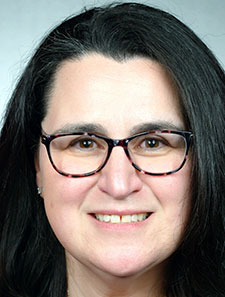“A sponsor talks about you, a mentor talks to you, and a coach talks with you.”1
As a new hospitalist embarking on a career in academic medicine and with aspirations to become an effective educator, Rosa is struggling to determine if she needs a mentor, a sponsor, or a coach to hone her skills.
Having a mentor increases career satisfaction, improves retention, enhances career goals, and augments academic productivity.2,3,4 This usually consists of a collaborative, reciprocal relationship focused on the mentee’s learning and career growth. Equally important, but often overlooked, are a sponsor and a coach. The terms sponsor and coach are often used interchangeably with mentor; however, they function in slightly different roles and use different tools to shape one’s career.
A sponsor highlights your accomplishments for others and uses influence to provide you with opportunities. A coach helps develop a specific skill or improve performance for tasks already underway. With the youth and vigor of hospital medicine and the constantly expanding scope of hospitalists, there is a great need for mentors, sponsors, and coaches both within hospital medicine and beyond. One person could serve in these three roles. However, more often than not several people will fill these various parts throughout your career.
Advise—mentorship
Usually a few steps ahead in their career journey, a mentor shares knowledge and experiences to aid in navigating career opportunities. A mentor-mentee relationship is often mutually beneficial: the mentee receives advice and guidance from someone more senior, while the mentor develops enhanced leadership skills and professional growth. Mentors can be found within your institution or more broadly within professional organizations.
Finding a quality mentor can prove challenging, as you want to cultivate a relationship with a peer who not only is committed to your success but who also has the time available to invest in the relationship. Evaluate compatibility by searching for someone with similar values, a career trajectory that aligns with your goals, and expertise in the field you desire to further explore. Develop rapport before establishing the mentorship relationship. Effective mentees prepare ahead for each meeting with their mentor, demonstrate curiosity and ask insightful questions, take notes and develop action plans, seek feedback, and drive the relationship forward by demonstrating a hunger to learn and improve. Seeking feedback is the most important aspect of this relationship as this is what allows mentees to recognize strengths and weaknesses, which are crucial for growth. While there is no set constraint on the duration of a mentor-mentee relationship, most last for at least one year.
For Rosa, a mentor might suggest attending a conference to further develop her teaching skills and to collect feedback surrounding weaknesses so she can make an action plan.
Advocate—sponsorship
A sponsor is usually someone more established in their field who uses their influence and experience to advise and advocate for opportunities that might lead to career benefits. In this active, visible role, sponsors help create opportunities and influence people’s perceptions of you.
Sponsors can be especially hard to find for women.5 Seek out those locally or nationally who have similar interests and have had opportunities you seek. Before meeting with a sponsor, self-identify specific sponsorship asks. Avoid being too general or specific with whom you are seeking, otherwise it is difficult to find a sponsor. Opportunities could include being an invited speaker on a topic you are well versed in, having someone nominate you for an award, or making introductions for networking.
While the characteristics of a mentor and a sponsor overlap, research shows that those who have sponsors are promoted faster and have more career-advancing opportunities.5 A sponsor helps get you a seat at the table, but remember: you are a reflection of your sponsor. They facilitate introductions, promote your visibility, and recommend you for opportunities with local or national visibility. A pure sponsor is often a time-limited or episodic relationship.
For Rosa, a sponsor might approach a clerkship or program director, vouch for her skills as an effective educator on the wards, and encourage involving Rosa in the next curriculum development summit.
Empower—coach
Since Dr. Atul Gawande wrote about his experience with having a coach in the operating room in 2011, the concept of coaching in medicine has slowly increased in popularity.6 A coach is someone who partners with their clients to co-create solutions to problems and gain skills to maximize the client’s personal and professional potential. Using appreciative inquiry, coaches ask powerful questions that allow clients to create meaningful goals and to achieve them.
While executive coaching has become very popular in the business world, many healthcare systems are employing coaches for their physicians and leaders. Having a coach is most useful when there is a specific challenge to overcome or a goal to achieve. Coaching often involves direct observation and feedback on skills, such as observing and then delivering feedback on how you conduct your teaching rounds. Before meeting with a coach, it can be helpful to think about what is currently going well and what needs to be improved upon in your life or career. Your coach will guide you through that challenge, reflecting your thoughts and actions to you in a way that you can identify possible solutions. Coaching relationships typically last several months, although they can continue longer if new areas for growth are identified.
For Rosa, a coach might say, “I understand you want to expand your skills as an educator, especially surrounding building frameworks for key clinical teaching moments. Let’s find a time where I can observe and give feedback on hospital medicine wards.”
Conclusion
Mentors, sponsors, and coaches are vital to career success. As a trusted, experienced individual who imparts experiential knowledge, mentors are key drivers of career success by helping you define your goals and identify strengths and weaknesses. Sponsors leverage their positions of authority or influence to advocate for you and support your involvement in new projects or in new roles. Lastly, coaches partner with you and encourage self-discovery and growth to inspire you to maximize your potential in the workplace. By cultivating these relationships, individuals can enhance their professional journeys, foster personal development, and achieve a more dynamic and successful career trajectory.

Dr. Perrin

Dr. Paletta-Hobbs

Dr. Crecelius
Dr. Perrin is an academic hospitalist, a clinical associate professor of medicine, the director of the hospitalist certificate program, and co-director of the generalist track at the University of Pittsburgh Medical Center in Pittsburgh. Dr. Paletta-Hobbs is an academic hospitalist, an associate professor of internal medicine, an associate program director for the internal medicine residency program and the hospitalist pathway director at Virginia Commonwealth University in Richmond, Va. Dr. Crecelius is an academic hospitalist and assistant professor of medicine at Indiana University School of Medicine in Indianapolis.
References
- Definitions: sponsor, mentor, coach. U.S. Air Force website. https://www.af.mil/Portals/1/documents/Mentoring/Sponsor_Mentor_Coach_Definitions.pdf. Accessed March 10, 2025.
- Efstathiou JA, et al. Long-term impact of a faculty mentoring program in academic medicine. PLoS One. 2018;13(11):e0207634. doi:10.1371/journal.pone.0207634.
- Kashiwagi DT, et al. Mentoring programs for physicians in academic medicine: a systematic review. Acad Med. 2013;88(7):1029–1037. doi:10.1097/ACM.0b013e318294f368.
- Reid MB, et al. Mentorship, productivity, and promotion among academic hospitalists. J Gen Intern Med. 2012;27(1):23-7. doi:10.1007/s11606-011-1892-5.
- Hewlett SA, et al. The sponsor effect: breaking through the last glass ceiling. Cambridge, Massachusetts: Harvard Business Review; 2010.
- Gawande, A. Personal best. The New Yorker website. https://www.newyorker.com/magazine/2011/10/03/personal-best. Published September 26, 2011. Accessed March 10, 2025.